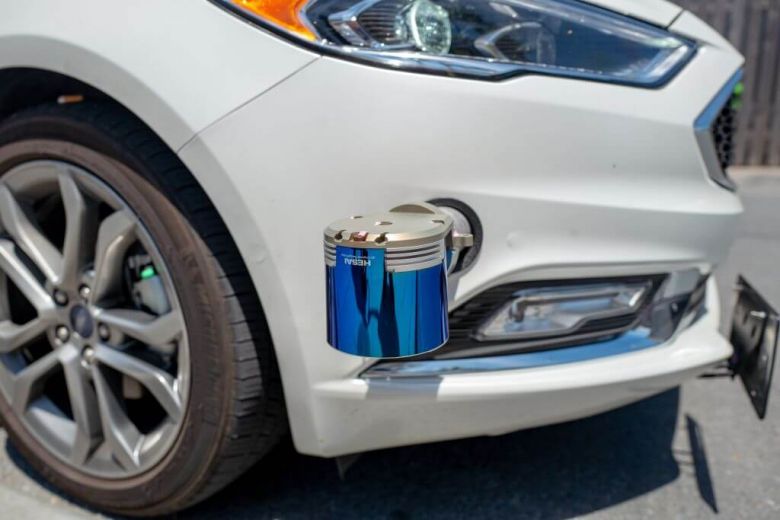Remote driving is a developing technology that enables an individual to drive a vehicle from a distant location.
The Law Commission was asked to produce this paper by The Centre for Connected and Autonomous Vehicles (CCAV) and International Vehicle Standards of the Department for Transport in order to clarify the current legal status of remote driving and consider whether reforms are needed.
Although examples of remote driving already exist today – operating in controlled environments such as warehouses, farms and mines, the Law Commission’s report explores how the existing legal framework applies to remote driving on UK roads involving all road users.
The most striking admission in the paper stated the threat posed by the technology when it comes to national safety.
The report revealed: “A concern is that a driver might find it easier to use a vehicle as a terrorist weapon if they are remote. This is because they would not be involved in the crash and would be able to maintain some emotional distance from their victims.
“This suggests that employers may need to vet remote driving staff, both to maintain the integrity of their systems and to prevent terrorists from being attracted to the remote driver role.”
The paper also highlighted many of the other concerns that remote driving could bring to UK roads and its users.
In the same section where the Law Commission discussed the impact of terrorism could have on the industry, they also discussed the threat to cybersecurity.
It stated: “Cybersecurity is an issue of acute public concern. The Society of Motor Manufacturers and Traders (SMMT) has noted that failure in this area may ‘undermine public confidence in the technology’ and also ‘present genuine risks to public safety’.
“Cybersecurity will need to be considered by both the designers and manufacturers of remote driving technologies, as well as the operator of such a system.”
The Commission paper further focused on remote driving, where the driver does not have full line of sight and may be in a remote operations centre many miles from the vehicle.
The report concluded that remote driving leads to other safety challenges, including connectivity, situational awareness, keeping a remote driver alert, training, civil liability, and when to have a rest.
Other issues such as remote driving from abroad and the ‘chilling effect of legal uncertainty’ were also discussed at length in the hope for reform in the near future.
The Law Commission asks whether driving from abroad should be prohibited altogether.
Following the release of the report, the Commission is inviting responses up until September 2nd 2022.
Commenting on the new paper, Nicholas Paines QC, Public Law Commissioner said: “Remote driving technology is already capable of being used on our roads. We hope our issues paper can contribute to a healthy debate about the appropriate regulation of this technology and what can be done to maximise protection of road users while encouraging innovation.
“We look forward to hearing views on the challenges and possible ways to solve them.”
After this period, laws could be changed around the definitions and legalities surrounding the use of remote driving in the UK.
The current legal framework was designed under the assumption that a human driver would be behind the wheel.
With the advancements in technology around remote and autonomous vehicles – what do you think about the latest developments? Leave your comment below.

Cheaper than AA or we’ll beat by 20%^
• Roadside cover from £5.49 a month*
• We get to most breakdowns in 60 mins or less
• Our patrols fix 4/5 breakdowns on the spot











